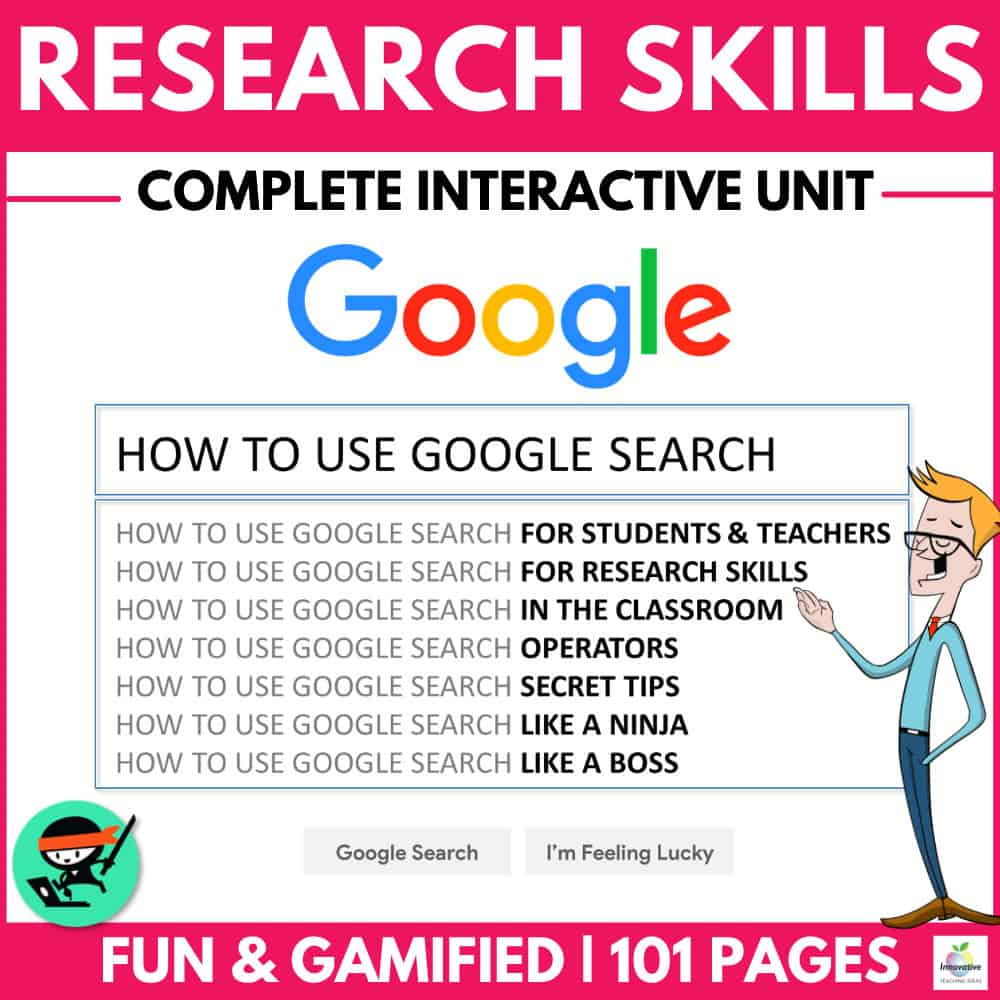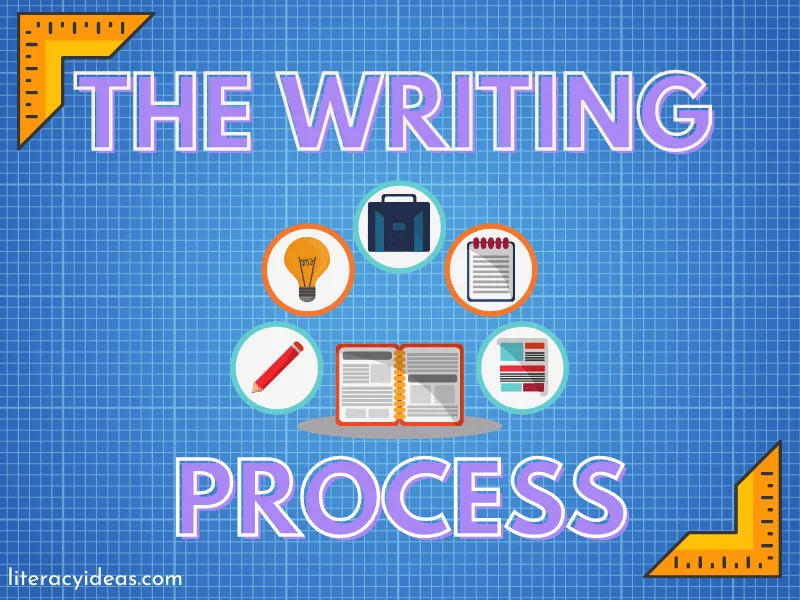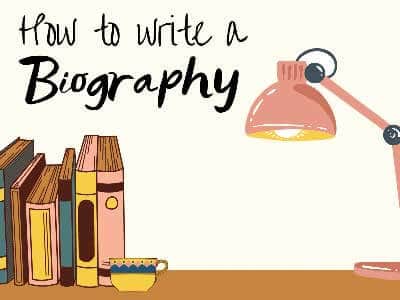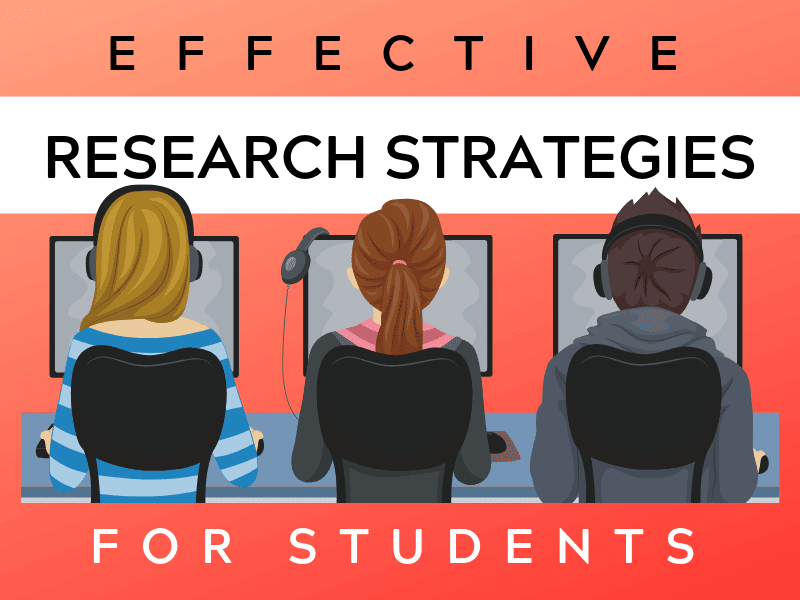
What are the essential research strategies for students?
Not so long ago, accessing information required legwork. Actual legwork in the form of actually walking to the library and searching through the numerous books organized using an archaic system called the Dewey Decimal System.
Things are much less complicated these days. In this wired age, accessing information is as simple as pressing a few buttons on a laptop or swiping your finger across a cell phone screen.
While this 24/7 online access to information represents impressive progress, we still need to ensure our students develop the necessary research skills and strategies that allow them to access the correct information, evaluate it for accuracy, and then plan for its use in our own work accordingly – whatever the student’s age.
In this article, we will look at solid research skills that will benefit students of all ages. Some of these are evergreen old-school strategies, while others are shiny new. Regardless, each is designed to help students from elementary through to high school make the most of the information to research effectively.
The skills described below represent the essential skills and strategies our students will require. They can begin to develop these in elementary school and build on those foundations as they progress through middle school and high school.
After examining these skills, we provide you with a series of activities organized hierarchically and categorized according to the approximate school stage they correspond to. These can also be dipped into and mixed and matched according to the particular abilities of your specific students.
COMPLETE TEACHING UNIT ON INTERNET RESEARCH SKILLS USING GOOGLE SEARCH
Teach your students ESSENTIAL SKILLS OF THE INFORMATION ERA to become expert DIGITAL RESEARCHERS.
⭐How to correctly ask questions to search engines on all devices.
⭐ How to filter and refine your results to find exactly what you want every time.
⭐ Essential Research and critical thinking skills for students.
⭐ Plagiarism, Citing and acknowledging other people’s work.
⭐ How to query, synthesize and record your findings logically.
Online Research Strategies
Research is essential to the writing process; students will stumble at the first hurdle without the necessary skills. Research skills help students locate the required relevant information and evaluate its reliability. Developing excellent research skills ultimately enables students to become their teachers.
Let’s now look at the most important of these research skills.
Research Tip # 1. Use Search Engine Shortcuts
Good research begins with asking good questions. This also applies to employing search engines, such as Google, DuckDuckGo, and Yahoo, effectively.
The Internet is an almost inexhaustible collection of information and is constantly growing. Search engines are a tool that helps us filter that information down to the exact piece of knowledge we are seeking. This is achieved primarily through the careful selection of search terms. The specificity of the search terms used is key to successfully navigating the immense ocean of information available on the ’net.
The more refined our search queries are, the more likely the search engine will return relevant information to us and the less time we will waste in the process.
As Google is the most popular search engine out there, here are some quick tips to ensure you and your students are getting the most out of your Google searches. However, note that many of these strategies also work on other search engines.
- Use Quotation Marks
Placing your search terms inside quotation marks (“”) ensures Google searches for the whole phrase, not just occurrences of the individual words in the phrase. This minimizes guesswork on the part of Google and ensures only the most relevant pages are returned to you.
- Exclude Words with a Hyphen
English contains a lot of ambiguity. While this is great for the poets among us, it can make researching some terms problematic. For example, if you search for the term ‘toast’ meaning speech, you may also get many results related to the much-loved breakfast staple. Simply type ‘toast -breakfast’ into the search bar to remove results related to this meaning. This tells Google only to return results including ‘toast’ and to exclude those results also containing the term ‘breakfast.’
- Search a Specific Site
Sometimes we come across a site that is a real treasure trove of information but where information is poorly indexed on the site menus. Luckily, there is a way to search the content on a specific site. To do this, simply type the search terms into the search bar followed by ‘site:’ and then the particular site URL. For example, if we wanted to search the Literacy Ideas website for mentions of the term ‘Visual Literacy’, we would enter:
visual literacy site:literacyideas.com
We highly recommend this resource for using Google search as a research tool with students. It is very comprehensive.
Research Tip # 2. Check Your Sources
The popular Internet meme quoting Abraham Lincoln states, “Don’t believe everything you read on the Internet.”
In this era of Fake News, we are constantly reminded of the unreliability of much of the information presented as truth on the web. We (and our students) must have some strategies to assess the accuracy and validity of the information we come across.
A good starting point is to ask yourself the following questions when assessing new information:
● Is this information up-to-date?
● Is this information detailed?
● Is the author identified?
● Is the author qualified on the topic?
● Are sources cited?
● Does the information come from a trusted source?
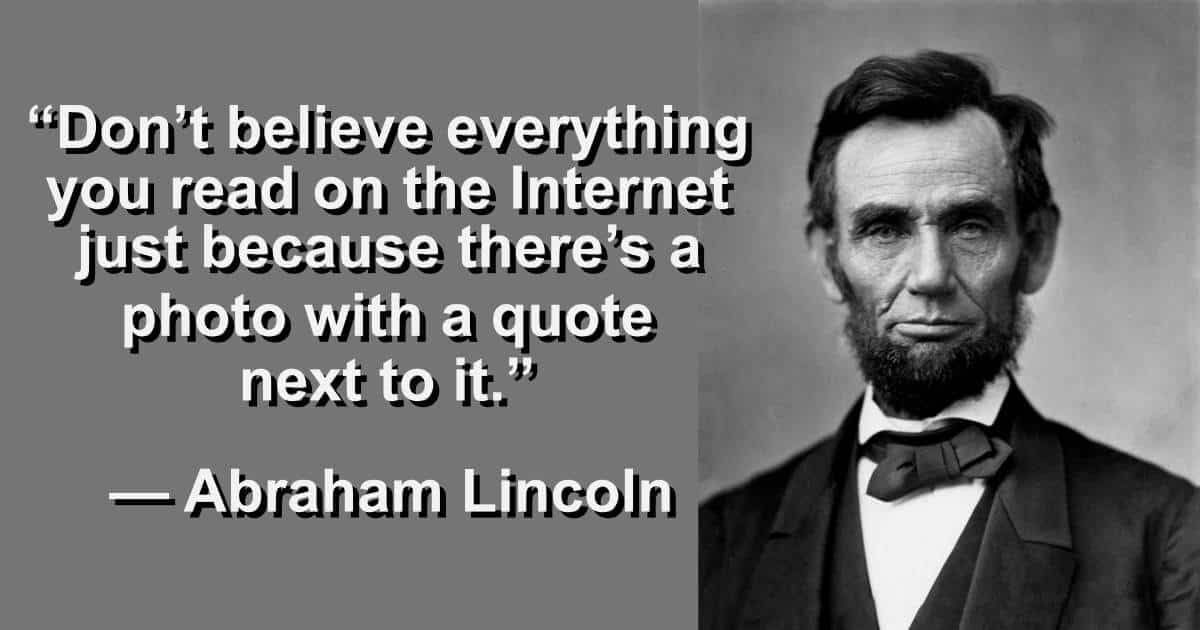
Research Tip # 3. Select Domains Wisely
When searching, encourage students to consider the importance of domains, such as .com, .org, .gov, and .edu. These are not all created equally. For example, .com and .org domains are classed as ‘open,’ meaning anyone can register on them. They are usually used for commercial reasons.
Other domains are classed as ‘closed,’ such as .gov and .edu, and registrants must meet specific eligibility requirements to register these. For example, in the case of .edu, registration is limited to accredited post-secondary institutions in the United States.
Depending on the purpose of your search, the domain you choose to search may have implications for the reliability and usefulness of the results returned.
To choose which type of domain to search, type ‘site’, followed by a colon, and then the domain after your chosen search terms.
For example, if you wish to search for the term ‘American presidents’ on .edu sites, simply type:
American presidents site:edu
Research Tip # 4. Citation
One downside of the widespread instant and free availability of information on the Internet is the erosion of intellectual property rights and the inevitable increase in plagiarism.
To combat this, we must ensure our students avoid plagiarism and respect copyright rights by adequately citing sources used.
When engaged in writing essays, students should be familiar with how to use quotation marks, compile notes, and structure a bibliography. When citing online sources, they should also be familiar with the conventions related to citing URLs.
Just how detailed citations are will depend mainly on the age and ability of the students in question.
Many excellent free online resources help to format citations correctly, some of which can automatically create formatted citations. For example, Citation Machine and Citation Builder provide this service. Google Docs also has an add-on feature that automatically generates bibliographies and footnotes according to various citation styles, e.g., Chicago, APA, MLA, etc.
Teaching Resources
Use our resources and tools to improve your student’s writing skills through proven teaching strategies.
Research Skills Activities
Elementary School Students
Providing a basic overview of the various research strategies is sufficient for this age group.
Discussions about what research is and why we do it are excellent places to start developing research skills.
These discussions will open up possibilities for students to acquire the necessary vocabulary to develop research skills.
Some topics and areas to focus these discussions on could include:
- How to ask questions about simple research topics
- The concept of keywords – what are they, and how do they work?
- A general overview of search engines, e.g., Google, DuckDuckGo, Bing, Yahoo
- A basic explanation of sources
- Simple note-taking skills
- Researching in the library the “old school” way
Elementary Practice Activities
- Individual Research Project
Ask the students to choose their favorite animal for a class presentation at the end. Students can start by generating research questions to fuel their investigations. Areas they might want to look at could include habitat, life cycle, population numbers, diet, etc.
- Collaborative Hands-On Research
This activity allows the students to engage in basic ‘hands-on’ research on the Internet. This will allow them to practice using keyword search terms to locate helpful information.
Organize the students into ‘research groups’ and provide the groups with a simple topic and a list of questions to research online. For example, the topic might be The Solar System, and some questions they might research could include:
- How many planets are in the solar system?
- What is the name of the closest planet to the sun?
- Which is the most giant planet in the solar system?
- Which is the smallest?
- How many moons does Jupiter have?
- How long does it take for Venus to orbit the sun?
- What is the name of the planet furthest from the sun?
The winning team will be the team to find all the correct answers the quickest.
- Class Project
Another variation of the individual research project is to do a whole class project on a larger scale. For example, students could choose a favorite holiday, such as Christmas, Thanksgiving, Eid, Hanukkah, Chinese New Year, etc., and research multiple aspects of it. For example:
- What are the roots of this festival?
- What is its significance?
- What types of gifts are given?
- What food is associated with this holiday?
- Are certain clothes, customs, or traditions associated with it?
The findings of this research could form classroom displays, presentations, exhibits, etc.
Middle School Students
Students are ready to begin using more sophisticated research skills and strategies at this age. Some things to focus on with middle school-aged students include:
- A more detailed explanation of sources and how to determine their credibility
- Examination of online encyclopedias such as Wikipedia – explore how they may not always be reliable but can be a good resource for locating other more credible sources.
- The use of domains such “edu” “org” “gov” and how they can be used to identify sources
- Practice using simple shortcuts that can be used when searching online
- Discussions on planning and keeping organized notes, e.g., journals, checklists, templates, etc.
Middle School Practice Activities
- Information Recording
As students begin dealing with more complex and larger volumes of information, they’ll need to develop strategies to help them condense and record information for later use in the writing process.
To help them develop this skill, set the students a how-to research task. Choose a task suited to your students’ ages and abilities, for example, anything from How to Bake Cookies to How to Construct a Bridge.
This is an opportunity for your students to develop their note-taking abilities helping them record the important information from their research activities. You may also want them to make visualizations such as diagrams, infographics, and charts, which are valuable techniques for recording the fruits of the research labor.
- Group Project
Organize students into suitably sized groups and provide them with a topic to investigate. Countries work well. Each group will assign a team member to research a specific aspect of their country, and they will pool their findings at the end to develop a presentation or classroom display. Some aspects worthy of research may include:
- History
- Language
- Geography
- Customs and traditions
- Cuisine
- Religion
- Economy
- Tourist attractions
High School Students
At this stage, the focus moves on from merely finding sources of information to actually processing them. Here, the students should be encouraged to engage more closely with what their research uncovers and begin to dig beneath the surface to evaluate material and sources more critically.
To develop these abilities, students will need to:
- Begin asking more probing questions to initiate their research
- Examine the sources of information more critically
- Become more precise and methodical in choosing search criteria
- Use multiple resources – online, news articles, documentaries, podcasts, youtube
- Keep records of sites visited and books, journals, and articles referred to for citation later
- Cite sources correctly
- Incorporate more sophisticated tricks when searching online:
- quotation marks for searching exact phrases/words
- minus symbol(-) for excluding certain words
- asterisk(*) used to broaden a search by finding words that begin with the same stem
- “site” for site-specific search
- Evaluate sources for reliability, relevance, accuracy, and how current they are
- Develop more organized note-taking methods – focus on quality over quantity
- Plan effectively – utilize strategies to compile information that will help in the final presentation of findings.
High School Practice Activities
- Develop Research Questions
As students learn to deal with the increasing breadth and complexity of research topics, they’ll need to know how to narrow their focus by developing more specific research questions.
This activity provides students with a list of topics to choose from; this can be an excellent opportunity for forging cross-curricular links. For example, you might suggest history or physical education topics, such as The Vietnam War or Cardiovascular Exercise.
Then, ask students to choose a topic and develop research questions on it for aspects they would like to explore further. For example, they might ask questions like How did the Vietnam War start? Or, What effect does cardiovascular exercise have on mood?
Students can then research the answers to their most interesting research questions and share their findings with the class.
- Hold a Debate
Debates are a great way to illustrate the power of research in practical terms – and they are a lot of fun to boot!
In this activity, organize students into debating groups of three. Assign each pair of groups a debate motion and a position. Students will then need to go away and research their topic thoroughly before writing their speeches and delivering their arguments. To learn more about preparing a debate-winning speech, check out our article here.
Research Strategies
“A goal without a plan is just a wish.”
So, what do students do with all these finally-tuned research skills now at their fingertips?
If the boy scouts have taught us anything, it is essential to be prepared. To that end, let’s look at planning strategies to help students get the most from their well-honed research skills.
1. Collaboration
In our rapidly changing world, it is impossible to accurately predict the nature of the jobs our students will undertake in the future.
However, what does seem sure is that the so-called soft skills, which are transferable between jobs, will be much in demand in the working world of tomorrow. Collaboration is one of these important skills.
Collaboration involves working together to achieve a common goal. It promotes high levels of interaction and communication between students and colleagues. Collaboration exposes each individual to diverse perspectives and encourages higher-level thinking. Incorporating collaboration at the planning stage helps ensure the success of teaching and learning projects.
2. The Round Robin
Brainstorming is a tried and tested means of beginning the planning process. There are many variations in brainstorming techniques. The Round Robin, which we will look at here, lends itself well to our previous collaboration strategy.
In the Round Robin, the students sit in a circle to discuss the topic.
One by one, go around the circle, encouraging each student to share one idea until everyone has had a chance to speak. While this happens, an appointed person can keep a record of each shared idea.
Ideas must be shared first without initial discussion or criticism. Evaluation and debate should occur only after each person has had an opportunity to share their ideas.
This is an excellent strategy to ensure each person has had an opportunity to share their ideas. It also avoids any one voice dominating a collaborative planning session.
3. The Mind Map
Mind Maps are simply diagrams that visually represent ideas. They can be done individually or collaboratively using words, pictures, or both.
With much in common with brainstorming, Mind Maps are an excellent way to begin the planning process, as they are a superb means of organizing complex ideas.
Many people use paper and pens to create Mind Maps for their projects. However, people are increasingly turning to technology to help their development. There are now many paid and free options online, providing templates and tools to help you develop your own Mind Maps.
4. Use an Online Calendar
Homework deadlines. Exam timetables. College applications. The demands on students and teachers alike are many and varied. It may, at times, seem impossible to keep track of everything.
Using an online calendar, such as those pre-installed on many cell phones, helps ensure you keep track of your to-do list, and many will even provide regular reminders as those deadlines loom near.
5. Create Checklists
Not only are checklists a great way to ensure you have fulfilled all the criteria of a given task, but they are also an effective means of planning out all the points you need to hit to complete a project successfully.
A good checklist should contain all the essential elements for a successful piece of work. When the descriptions of these items are kept generic rather than detailed and specific, they can serve as templates for a particular genre to be reused each time your students engage in that type of work.
Research Thoroughly. Implement Effectively!
Research skills are the bridge between the idea and its implementation in writing. The more students develop their research skills, the more authoritative their writing will become. With practice, these two sides of the blade will become razor-sharp.
A COMPLETE DIGITAL READING UNIT FOR STUDENTS
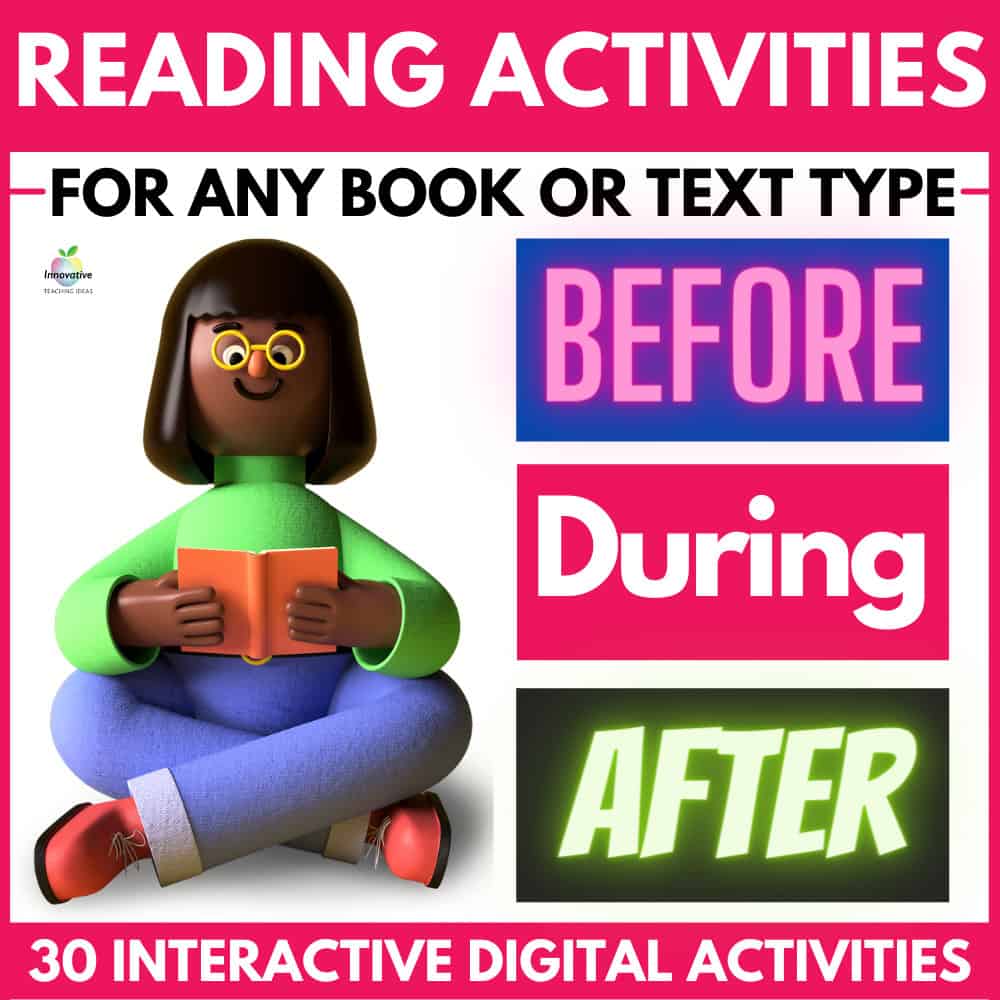
Over 30 engaging activities for students to complete BEFORE, DURING and AFTER reading ANY BOOK
- Compatible with all devices and digital platforms, including GOOGLE CLASSROOM.
- Fun, Engaging, Open-Ended INDEPENDENT tasks.
- 20+ 5-Star Ratings ⭐⭐⭐⭐⭐
Useful research strategIES video TUTORIALS
OTHER GREAT ARTICLES TO SUPPORT RESEARCH SKILLS


